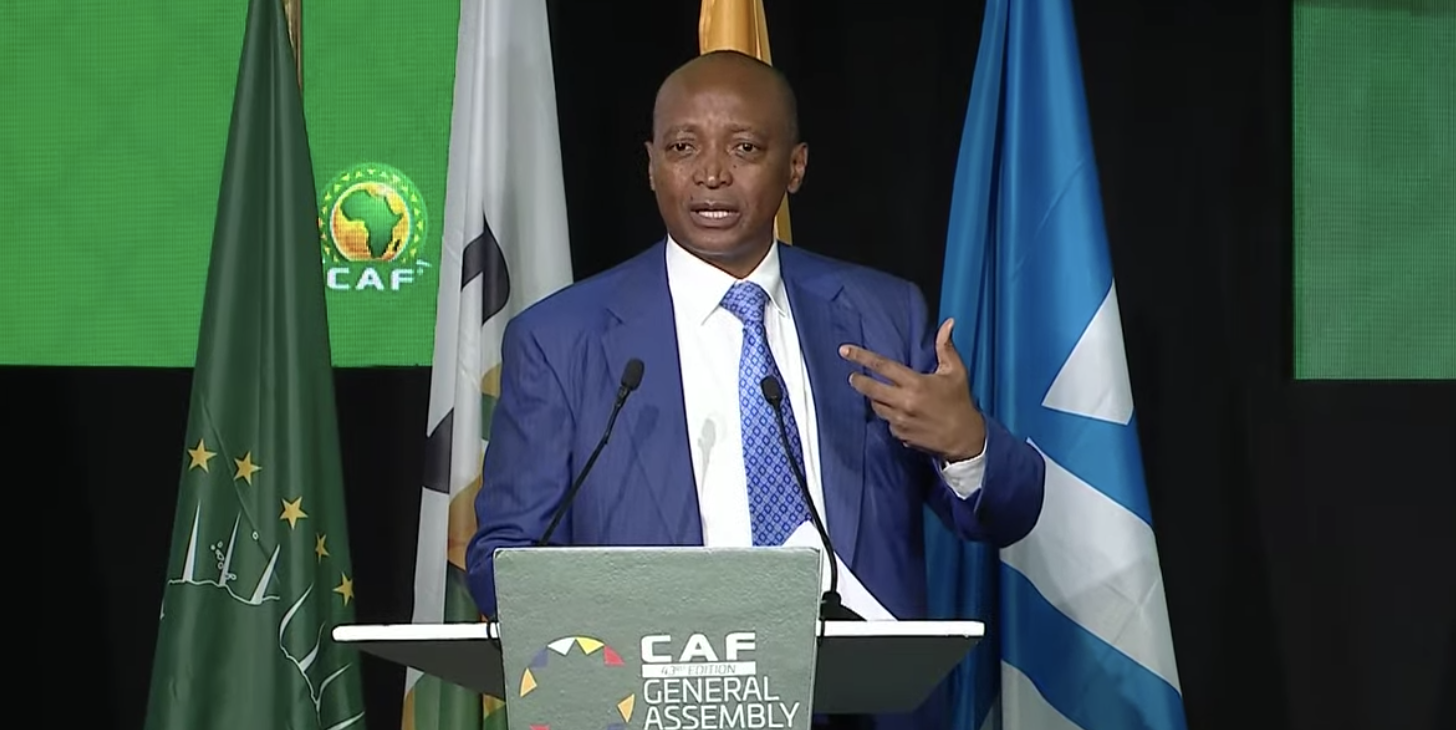By Paul Nicholson
March 12 – South Africa’s Patrice Motsepe took the throne of African football at the 43rd CAF Congress today, profusely thanking his many ‘brothers’ before sending a clear message at the end of the meeting that there is an urgent need to progress the game in Africa and that it can’t be done without the buy-in of the private sector in all member nations.
On his election Motsepe said: “It is a huge honour and a huge privilege for me…I thank my brother Constant (Omari) and my brother Gianni (Infantino) for their vision and encouragement of unity.”
He also, eventually, found a sister to thank in Fatma Samoura, one of very few sisters in the room, though that under-representation can’t be held at his door at this stage of his presidency.
“Fatma, like Gianni you belong to us. You are one of us,” he said, perhaps giving credence to the expectation that Samoura is to be parachuted back into CAF as general secretary.
Motsepe is a billionaire businessman, Africa’s ninth richest man, who has been given the keys to what in his world must look like a corner shop. Why would a man worth billions with a company worth billions more want to be boss of an institution that has social values enshrined in its constitution, and this year has just approved a budgeted revenue of just $120 million to make a loss of $3.2 million after expenses?
The answer most likely lies in the profile that comes with the position. Motsepe in a short space of time is likely to be more recognisable across the continent, and in the wider world, than another brother of his, brother-in-law in fact, South African president Cyril Ramaphosa. Another one of those South African brothers in the billionaires club.
Motsepe isn’t a man born of football, immersed in football’s ways and service to the game for the love the game. He has no track record in the administration of African football, he owns a club in South Africa. He may be just what Africa needs. A tool to help Africa prise itself out of its circle of relative football poverty and perceived under performance.
Returning to the dias at the close of the Congress, Motsepe said: “This is not the time to be repeating what we discussed in my 10-point business plan that became the plan (of all of us). What needs to be done represents the thinking of my brother Yahya, my brother Augustin, my brother Jacques (Ahmad, Senghor and Anouma who all stood down to make way for Motsepe in the election that never was, or perhaps was never allowed).”
Whether it might or might not have been their plan no longer matters, and this is where Motsepe is immediately different. Where others in football would likely come with development strategies, governance reforms, perhaps even integrity initiatives, he comes with a business plan.
“I want to emphasise there is a sense of extreme urgency, a sense of urgency to get going,” he said. Part of that is clearly a “need to make sure we stabilise our finances”.
“One of the things I would like to change is to have more interaction with presidents. I don’t think meeting once a year is sufficient. We need to meet at least twice a year and talk about what needs to be done.”
Motsepe talks of a “clear understanding” of what needs to take place and of the “most important implementation and delivery”.
“One of the major tests is what happens in every country – growth and sustainability. Each and every member association must be sustainable… I will be visiting every single country in CAF in the next 9-12 months. It is important to engage in your country. I will meet with the private sector in every country and politicians.”
It was a theme he returned to later saying that “football cannot succeed without partnership with the private sector”.
Turning to the sport itself, he spoke of the great teams they have had in Africa but their inability to make it to the final rounds of world competitions. “The world will only respect us not when the best players are respected in Europe…but when national teams compete and win and succeed. We can do that and we will.”
For Motsepe the starting point is youth and infrastructure. And the solution to that is once again a business one, using the example that in Africa they spend hundreds of millions on TV rights for European football when they should be ensuring that in TV negotiations more money should be coming back into the national game.
It sounded almost like a call for some kind of affirmative action to unlock broadcast revenue for the African game. With Motsepe’s connections he could perhaps pull it off.
“I am not just confident but very excited (for the future). The face of African football will never be the same again,” he said.
And for Motsepe it is not just about African football but how football is integrally a key part of economic and social growth across the continent. “Football is a powerful tool to reassert pride, dignity and the global respect of Africans.”
Contact the writer of this story at moc.l1713912809labto1713912809ofdlr1713912809owedi1713912809sni@n1713912809osloh1713912809cin.l1713912809uap1713912809

